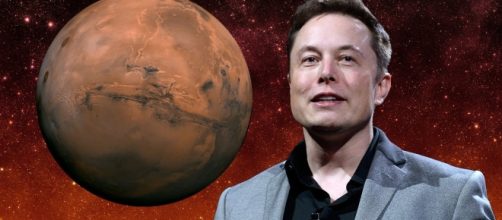Elon Musk’s plan to colonize Mars has been criticized from a number of quarters, with some claiming that it is illegal, some saying that it is immoral. Robert Walker, writing in Science 2.0, suggests that Musk has the right idea but the wrong world. Walker argues that the moon is the more appropriate place to start a colony, at least in the near term.
Walker spends a lot of bandwidth talking about “planetary protection,” that being the quarantining of Mars from Earth-borne bacteria. Purveyors of space probes such as the Mars Curiosity rover spend a lot of effort making sure they are sterilized to prevent the introduction of such organisms into the Martian environment.
Mars may or may not have its own bacteria, hiding in the permafrost beneath the surface. Scientists are keen to find this alien life and study it at length. The introduction of Earth life would contaminate the Martian environment.
The planting of a colony of a million people would certainly bring along with it Earth microbes that would change the environment of Mars forever. Walker goes so far as to suggest that Mars should be closed off to human contact altogether for the foreseeable future, limiting surface exploration to robots teleoperated from habitats in orbit.
The most compelling argument for starting a colony on the moon instead of Mars is economic. The moon has a great deal of mineral wealth, platinum group metals, rare Earths, a possible fusion power fuel called Helium 3, and water and other volatiles trapped in cold traps in permanently shadowed craters at the poles.
A lunar colony could also serve as a base of operations for near-Earth asteroid miners. Walker suggests that economic activity on the moon might support a million people.
The other arguments for the moon consist of the fact that it is closer at hand than Mars. The moon is three days away while Mars is, in the best case, six months away. Musk proposes sustaining 100 to 200 people in monster spacecraft for months at a time, subjected to microgravity and radiation. The moon, on the other hand, is readily accessible. An Earth-moon transportation infrastructure could be developed in far less time than a similar one reaching Mars.
It is clear that Musk, whether or not he succeeds in colonizing Mars in the way he envisions, has already started a conversation about something hitherto consigned to science fiction, the permanent settlement of humans beyond the Earth.

